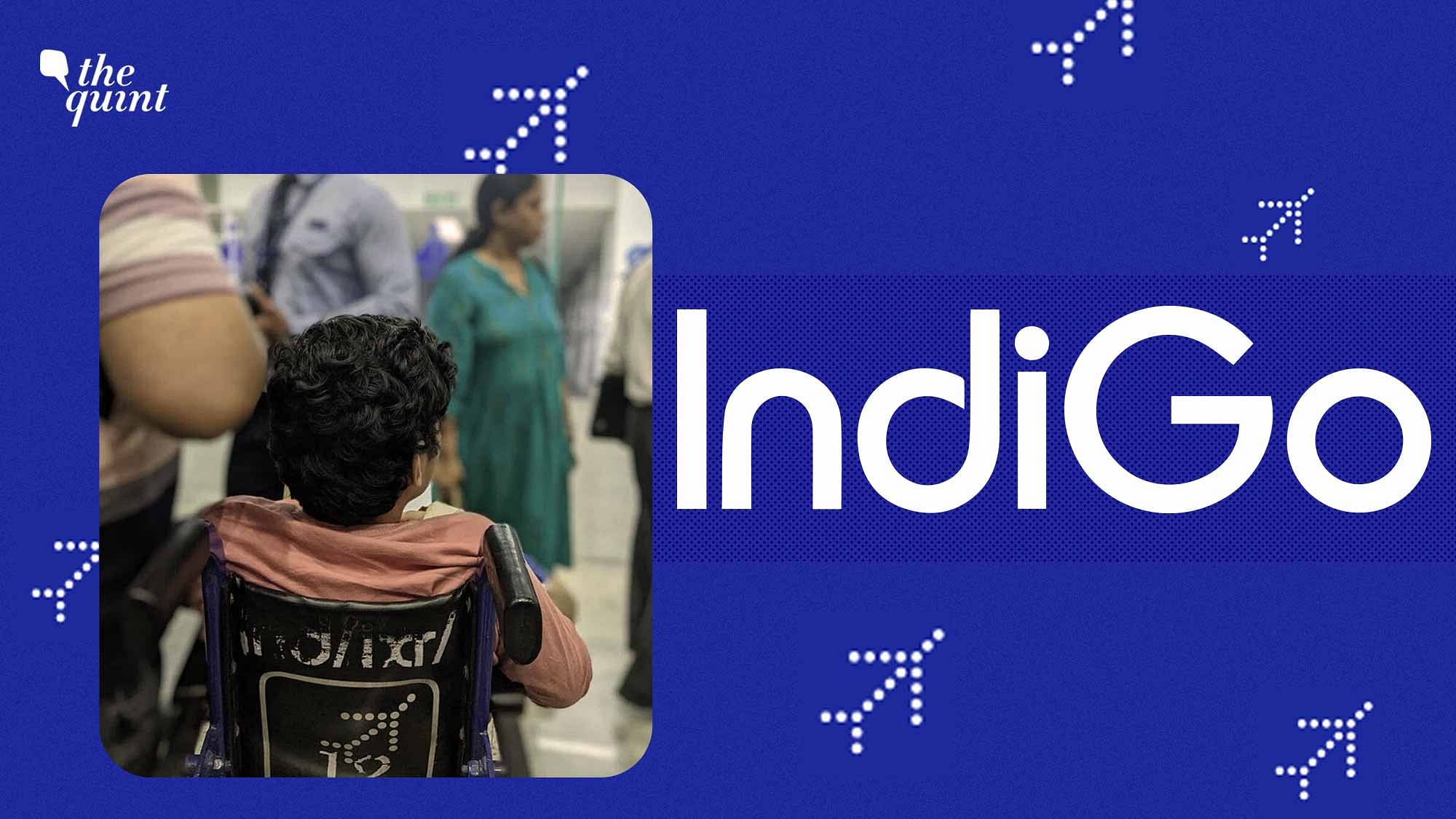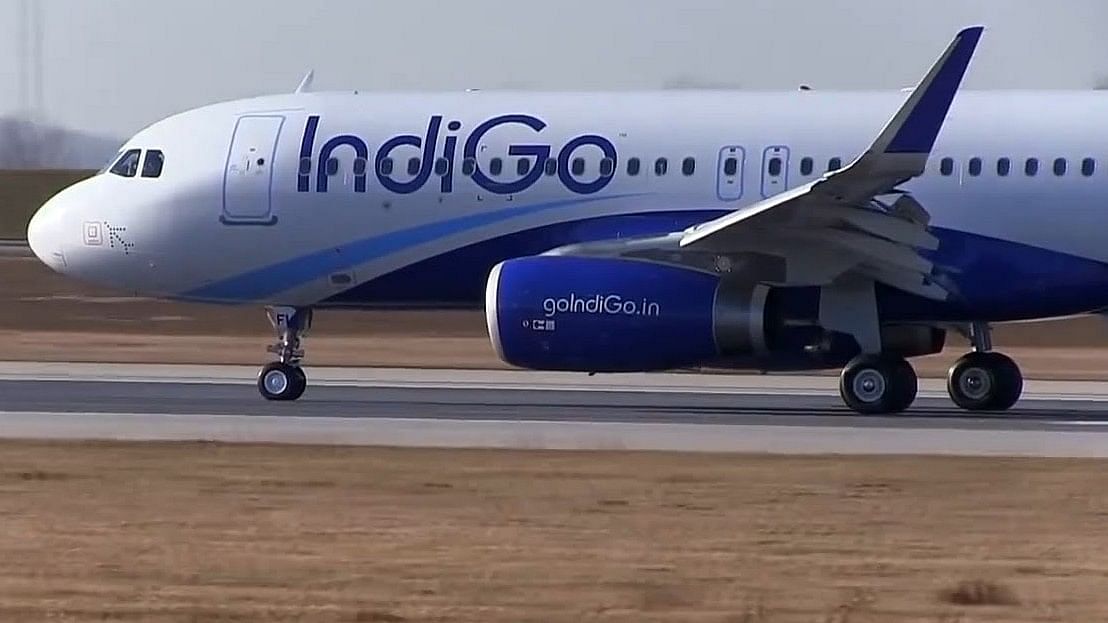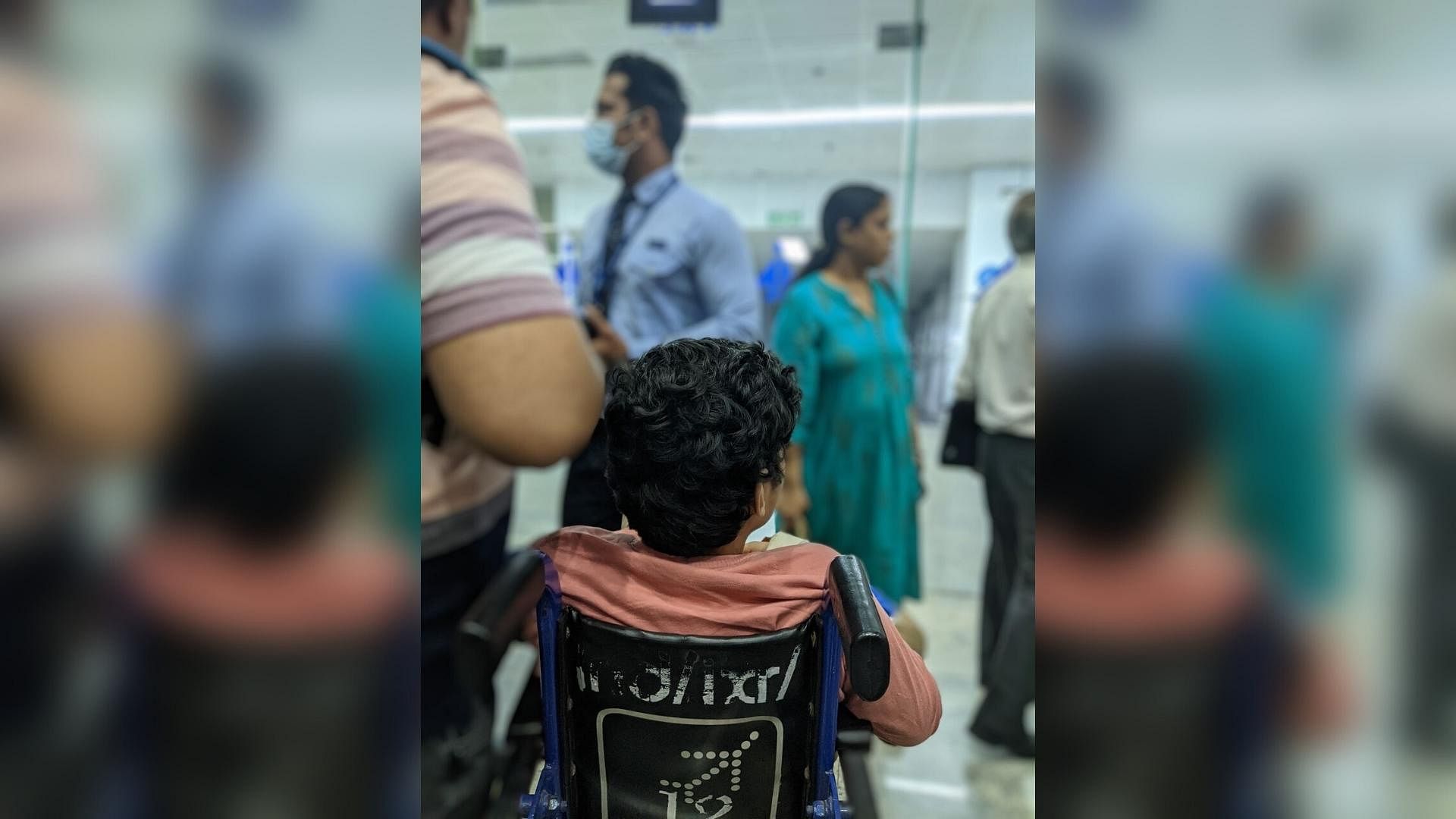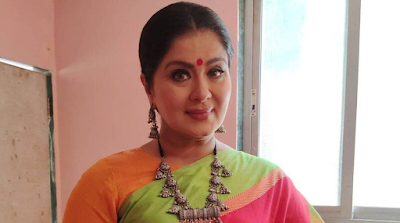May 10, 2022
Reporter: Sakshat Chandok
(Dr Sumit Ray is a senior consultant in critical care medicine. He was waiting at the Ranchi Airport when IndiGo barred a child with disabilities to board a flight to Hyderabad. The following is an as-told-to account, recorded and written by Sakshat Chandok.)
I was waiting at the Ranchi Airport on 7 May when I heard that a special needs child was crying. He was irritable and hungry as he had just come from a long, uncomfortable car ride, and his parents were looking after him.
He also had a cast on his arm, and was probably in some pain and discomfort, which made him restless and added to his woes.
Since he was a child with multiple disabilities, he took some time to calm down. When he finally did, it was time for their flight to start boarding passengers.
At that time, a manager from IndiGo said that since the child was "crying and panicking", he couldn't allow him to board the flight. He has to become "normal", the manager asserted.
Since the child was stopped from boarding, many passengers took it up with the the IndiGo representative. They explained to him that the child has special needs, and that he was restless earlier but had calmed down later. And after the child had stopped crying, he was sitting calmly on the wheelchair for 25-30 minutes.
There was also a team of six to seven doctors who were also boarding the same flight as the child and his parents. They said that if there is any problem on board, they would take care of it. "He's a child on a wheelchair," the doctors told the manager, adding, "He cannot be a threat to anybody.”
IndiGo Manager Was Unempathetic and Particularly Aggressive
The IndiGo manager was arguing with everybody. "You don’t understand. The child is panicking," he said, asserting that people who are under the influence of alcohol or behaving like the child would not be allowed to board.
Everybody got angry with him, but still people were very polite. The passengers on his flight and on other flights came together to explain to him, cajole him, but to no avail. They also urged him to call his senior, to which he said, "I am the senior person."
At that point I questioned him, “Do you even understand what the child’s problem is?” To which he replied that he knew it. So, I asked him what the child suffered from. “That’s not important. He was panicking," the manager retorted.
We asked him whether there was a doctor in the IndiGo team, to which he said that there wasn’t one. Then I suggested to him to call the airport doctor to examine the child.
Some people even asked him to talk to the captain of the flight, which he completely ignored.
I also said that as doctors, we know that the child is not going to be a threat to anybody. But he just refused. He was aggressive and unempathetic.
Lacking in Training
I’m not trying to blame any airline. IndiGo has a fair reputation of taking care of people with special needs. But obviously there is something lacking in their training.
And it’s not just training. The manager was particularly difficult. Even the policemen who were there, who have no authority to allow a person on the flight, were asking the manager to let the child board.
He repeatedly said that the child had to become “normal”, to which we said that normal for him is different compared to what it might be for you. He was totally unwilling to listen or understand. He didn’t even know what disability meant.
He knew that most passengers would have to leave to catch their flights sooner or later, so he delayed the entire process to ensure that the child does not board the scheduled flight.
It is absolutely essential that we sensitise staff, particularly those who are dealing with people with special needs at different sites of interaction.
Sensitisation in different areas has certainly helped to create more awareness. In this particular situation, what the media, disability sector activists and others have done, has made people aware of special needs to a great extent.
IndiGo claims that they are good with people with disabilities, and I’m certainly not countering their claim. But in this situation, there was a failure on the part of the system.
According to me, the airline should have flown the child on the next direct flight. They should have an SOP in such a situation, as per which they should become more aware and receptive. Secondly, if so many people are saying something that is in disagreement with the airline’s representative, he needs to involve his seniors.
Sensitivity of People The Only Good Thing to Come Out Of This Sad Story
The nicest thing to come out of this sad story was the sensitivity of people. There was not a single person apart from the manager who said that the child should not be allowed to board.
Every passenger on the boy’s flight said that they had no problem with the child flying in the same plane. Most people in the airport didn’t know what kind of special needs the child had. But they had the empathy and understanding that he required a special kind of care.
It was just this manager and his ego that did not permit the child to board. “You are stuck now because of your ego,” almost everybody told him, but he didn’t listen.
Impact on the Child
It is obviously distressing for the child. I don’t know how much of it will he register, but now he might probably be more anxious in public places, especially when he has to travel.
The parents may consciously or subconsciously curtail their or their child’s travel as well as their own interactions with people – especially in public.
I remember seeing the father. He was on the verge of tears. It was a mix of anger, desperation, and sadness that he was going through.
I know it is easier said than done, but one can only hope that the family may look at the positive side of this situation someday which was that so many people came out in support of them and their child. But, I can imagine how difficult it must be for them.
(The Quint has reached out to IndiGo for a comment on the manager's demeanour. The article will be updated as and when they respond. On 9 May, in an official statement from IndiGo CEO Ronojoy Dutta, the airline had expressed "sincere regrets to the affected family for the unfortunate experience".)
Published:







